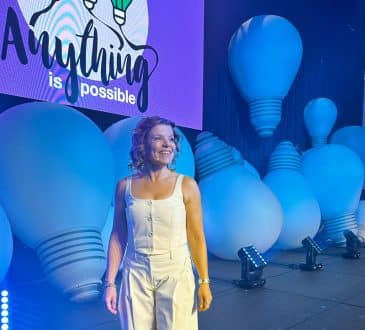4 Critical Tasks Of The Effective 21st Century Leader

When considering future of work trends, it’s especially important to think through the type of leadership that will be required in this ever-evolving business landscape. Some have already examined this question. For instance, according to DDI’s 2016 global study of 15,000 executives in 18 countries, there are certain personality traits and attributes that make it more likely that a person will succeed in a 21st century business world leadership role. I’ll use this opportunity to review DDI’s findings of the most effective leader qualities and share my own point of view as well.
Managing Complexity
The DDI report profiled 243 CEO finalists, in 48 organizations, and benchmarked them against its larger database. The study learned that the most successful CEO candidates instantly and accurately size up complex business situations. Relying on seasoned business instincts, they quickly sort the good business ideas from the bad so they can steer toward best bets.
Once they determine the best path forward, they stay laser focused on outcomes and demand specifics on how results will be achieved. They also embody the customer persona so that they can diagnose how business plans will meet customer needs now and in the future.
Mastering Agility
Most current leaders grew up in a business world believing in policies and procedures. Without them, their organizations were disorganized, chaotic, and unfocused. A process-free company has trouble setting goals and driving incrementally better performance. They realized that employees could easily lose motivation when they felt they had no control over their own success. However, in today’s business world, leaders have to be careful not to assume that an existing process can always tell them how to move forward, or will always lead them in the direction of the best decision. And very often, an existing process will need to be changed depending on new circumstances and developments. Or, one might have to throw it out and start over.
This means 21st century leaders need to be more tolerant of uncertainty. They have to be comfortable with the prospect of data delivering an unexpected result that could send any pre-planned strategies careening in the opposite direction. They have to be willing to listen to the ideas of those without traditional authority, because those might be exactly the perspectives they need.
Facilitating a Strong Culture
Leaders often struggle with the notion of culture. Is it really something an individual can shape? The good news is, a desirable culture is well within reach – just by being authentic and staying true to the organization’s most important values. Twenty-first century leaders can encourage a positive environment that engages and inspires managers, staff, and customers simply by keeping in mind their “reason for being” and encouraging goals that support that purpose.
It’s essential to understand that the era of command and control is over. Companies with strong cultures have a clear mission and vision that is communicated from the top and reinforced periodically. Leaders have an open-door policy for feedback and suggestions and take the time to explain the big picture behind decisions and new developments. And more than ever, leaders are extending open communication to external constituents via an active social media presence.
Reducing Hierarchy
Organizations that have layers upon layers of management tend to require a lot of red tape to get things done, and the amount of resulting bureaucracy is enough to drive agile and innovative employees to distraction.
The opposite of a hierarchical structure is a holacratic one. Holocracies are organizations that have removed power from a management hierarchy and distribute it across teams that execute autonomously. More 21st century companies are moving toward this model, which can work when leaders build teams in which members are empowered to set goals that are then shared and adopted by everyone. At one IT firm, for example, an entry-level engineer developed a new and useful program. He convinced his colleagues of its value, and within a few months, it was the company’s most competitive offering.
There are nuances here, though, and leaders should be measured in their approach to hierarchy and holacracy. The best style probably depends on a team’s individual situation, and leaders must be prepared to adjust communication and behavior depending on team dynamics. It’s unlikely that a radically holacratic structure, in which there are no main decision-makers and no titles, will work for most organizations. The key to success, as with many tasks of the effective 21st century leader, is to implement it in a sensible way that takes advantage of its benefits while leaving room for testing, adjustments and lessons learned.
Have you read?
# Best Countries For Business In Europe For Non-European Investors, 2019 .
# World’s Top 100 Cities To Reside In For 2019.
# World’s Best Countries To Invest In Or Do Business For 2018.
# RANKED: The World’s Top 10 Richest Countries (2017-2027).
Add CEOWORLD magazine to your Google News feed.
Follow CEOWORLD magazine headlines on: Google News, LinkedIn, Twitter, and Facebook.
This report/news/ranking/statistics has been prepared only for general guidance on matters of interest and does not constitute professional advice. You should not act upon the information contained in this publication without obtaining specific professional advice. No representation or warranty (express or implied) is given as to the accuracy or completeness of the information contained in this publication, and, to the extent permitted by law, CEOWORLD magazine does not accept or assume any liability, responsibility or duty of care for any consequences of you or anyone else acting, or refraining to act, in reliance on the information contained in this publication or for any decision based on it.
Copyright 2024 The CEOWORLD magazine. All rights reserved. This material (and any extract from it) must not be copied, redistributed or placed on any website, without CEOWORLD magazine' prior written consent. For media queries, please contact: info@ceoworld.biz
SUBSCRIBE NEWSLETTER








